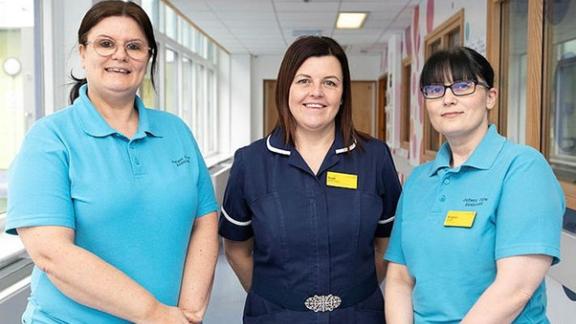Reducing the elective care backlog for people with a learning disability: Calderdale and Huddersfield NHS Foundation Trust

Overview
Calderdale and Huddersfield NHS Foundation Trust (CHFT) embedded a range of initiatives to ensure equitable access, experience, and outcome for people with a learning disability who needed elective surgery.
What the organisation faced
CHFT serves a population of around 440,000 people, approximately 3,000 of which are patients with a learning disability known to the provider.
There is evidence that people with learning disabilities have poorer health and experience greater and persistent healthcare inequalities. This is highlighted in the Learning from Lives and Deaths report in 2021, which shows disparities in avoidable medical causes of deaths between those with a learning disability and the general population.
Despite the persisting challenge of reducing waiting lists for elective care, made harder given the conditions of tackling high demand with limiting resources, it is important to maintain a focus on health inequalities and achieving equity of access and outcome for all patients.
Improvement
To address the health gap between those with a learning disability and the general population, the senior leadership team at CHFT made a commitment to improving the lives of people with a learning disability and embedded a range of initiatives to ensure equitable access, experience, and outcome for this group of patients when they needed elective surgery.
The improvement journey began with dedicated sessions delivered to the board on all aspects of what it’s like living with a learning difficulty. An enhanced task and finish group was also established to take forward these priorities within the trust, with support from those with lived experience.
CHFT adopted a data-driven approach to identify those with a learning disability, understand their experiences and monitor the difference it made. Examples include a flagging system within the patient records, a learning disability data dashboard, and using comparative data to model against the general population.
A big focus was also placed on patient journeys from the point of referral to treatment, focusing on reasonable adjustments that could be made by the trust. CHFT looked at key data around missed appointments, readmissions, length of stay and mortality. This enabled the trust to identify key target areas of prioritisation for people with learning difficulties and key partnership work. For example, collaborative work being undertaken with a private special needs dental service.
Additionally, learning disability champions were made available to staff across the trust to provide training, support, and communication with patients, improving staff knowledge and awareness around learning disabilities.
Through these processes, the trust was able to develop a strong inpatient standard operating procedure for adults with a learning disability and a pilot outpatient service for children and young people.
Outcome
In 2021, these improvements led to all 77 patients on the waiting list with a learning disability receiving planned care. The whole-trust approach eliminated the backlog of those waiting with a learning disability while also improving ‘did not attend’ rates and reducing length of stay in hospital, readmittance rates and waiting times. Outcomes for people with learning disabilities have improved, as has work satisfaction and cost-saving benefits.
In addition to reducing healthcare inequalities for people with a learning disability, CHFT has undertaken analysis of their waiting list data for other factors such as deprivation and ethnicity through a health inequalities dashboard, as well as establishing a wider health inequalities group.
Lessons learned
- Data and data-driven practice is vital in tackling health inequalities.
- Collaborative working across the organisation with data sharing is vital to enabling the work to be completed.
- Lived experience is vital in tackling system issues, ensuring people with learning disabilities are heard and included is important.
- The commitment and buy-in from all levels of the organisation is important, whether that is leadership, management, or administrative teams.
Contact details and further information
To connect with the creators of this service, contact Calderdale and Huddersfield NHS Foundation Trusts communications team members:
- Head of Communications: Amy Campbell, 01484 35 5253, amy.campbell@cht.nhs.uk
- Communications Manager : Jacqui Booth, 01484 35 5256, Jacqui.booth@cht.nhs.uk
Further information is available on the NHS England's website:



